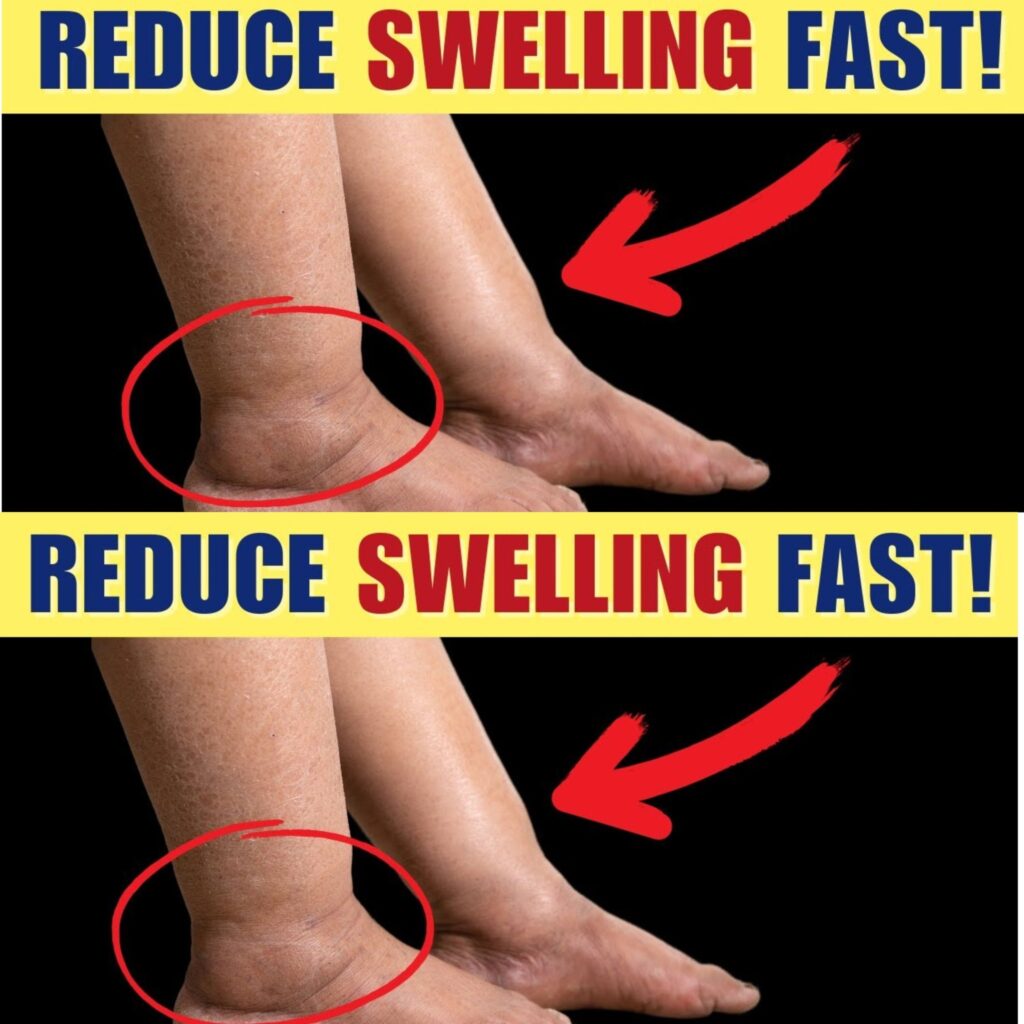
Swelling in the legs and feet, known as edema, is often caused by factors like poor circulation, fluid retention, or underlying health issues. Certain vitamins can help relieve swelling by promoting better circulation, reducing inflammation, and supporting fluid balance. Below are the top vitamins to consider:
Vitamin B6 (Pyridoxine)
How It Helps: Vitamin B6 helps regulate fluid levels in the body, acting as a natural diuretic. This reduces water retention and can minimize swelling in the legs and feet.
Sources: Bananas, chickpeas, potatoes, salmon, poultry, fortified cereals.
Key Benefit: Reduces water retention, helping to alleviate swelling.
Vitamin C
How It Helps: A powerful antioxidant, vitamin C reduces inflammation and strengthens blood vessels by supporting collagen production. Improved circulation from healthier vessels can help prevent swelling due to poor circulation.
Sources: Citrus fruits (oranges, lemons), strawberries, bell peppers, broccoli, spinach.
Key Benefit: Reduces inflammation and strengthens blood vessels, leading to better circulation.
Vitamin E
How It Helps: Vitamin E improves circulation and reduces inflammation, both of which are crucial for preventing and treating swelling. It also keeps blood vessels healthy, reducing blood pooling, which contributes to edema.
Sources: Almonds, sunflower seeds, spinach, avocado, olive oil.
Key Benefit: Enhances circulation and reduces inflammation, helping to minimize swelling.
Vitamin D
How It Helps: Vitamin D supports healthy blood vessels and reduces inflammation. A deficiency in this vitamin can lead to poor circulation and fluid retention, both of which contribute to swelling.
Sources: Sunlight exposure, fatty fish (salmon, tuna), fortified dairy products, egg yolks.
Key Benefit: Reduces inflammation and supports healthy circulation to help alleviate swelling.
Vitamin K
How It Helps: Essential for blood clotting and circulation, vitamin K strengthens blood vessels and capillaries, preventing fluid leakage into tissues that causes swelling. It is particularly effective for swelling due to varicose veins.
Sources: Leafy greens (kale, spinach, broccoli), Brussels sprouts, green beans.
Key Benefit: Strengthens blood vessels, reducing fluid retention and swelling.
6.Magnesium
How It Helps: Though a mineral, magnesium is important for fluid balance and reducing inflammation. It acts as a natural diuretic and promotes healthy circulation, preventing the water retention that leads to swelling.
Sources: Almonds, pumpkin seeds, spinach, black beans, avocados.
Key Benefit: Helps reduce fluid retention and improve circulation to reduce swelling.
7.Omega-3 Fatty Acids (EPA and DHA)
How It Helps: While not a vitamin, omega-3 fatty acids are crucial for reducing inflammation and promoting blood flow. These fatty acids enhance circulation and prevent fluid buildup, lowering the risk of swelling.
Sources: Fatty fish (salmon, mackerel), flaxseeds, chia seeds, walnuts.
Key Benefit: Reduces inflammation and supports healthy circulation, preventing and reducing swelling.
Additional Tips to Reduce Swelling:
Stay Hydrated: Drinking enough water helps flush out excess sodium, which can reduce water retention.
Exercise Regularly: Physical activity enhances circulation, which helps prevent and reduce swelling in the legs and feet.
Limit Sodium Intake: Reducing your salt intake can help prevent fluid retention, a common cause of swelling.
Conclusion:
Incorporating vitamins such as B6, C, E, D, and K, along with magnesium and omega-3 fatty acids, into your diet can significantly reduce swelling in the legs and feet by improving circulation, reducing inflammation, and balancing fluid levels. Additionally, maintaining good hydration, regular exercise, and a low-sodium diet are important steps in managing swelling. If swelling persists, consult a healthcare provider for further evaluation.